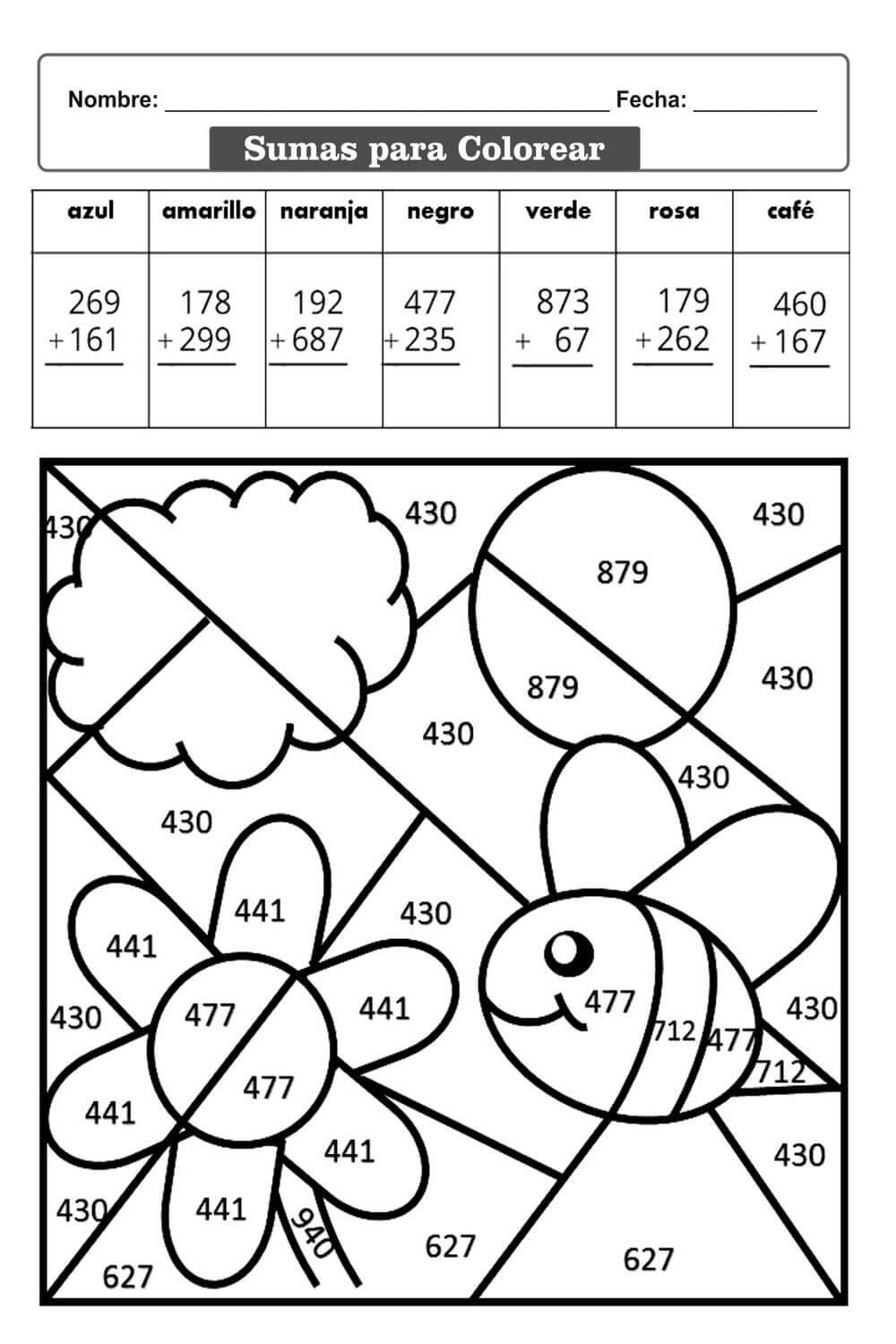Conquering 4-Digit Addition with Carry-Over: A Sneaky Math Survival Guide
Let's be honest, math can be a real drag sometimes. But some things, like adding up big numbers, you just can't avoid. So, what if you're stuck staring at a monster 4-digit addition problem, complete with the dreaded carry-over? Don't panic. We've got you covered with a comprehensive guide to conquering the beast that is 4-digit addition with carrying.
Adding larger numbers, especially those pesky 4-digit ones involving carry-overs, can seem daunting. But it's a fundamental skill, a building block to more complex mathematical concepts. Think of it as leveling up your math skills! Whether you're balancing your checkbook (does anyone still do that?), calculating your grocery bill, or even just trying to figure out how much sleep you got last week, adding multi-digit numbers is a necessary life skill.
The history of addition with carrying is intertwined with the development of our number system itself. The positional notation we use today, where the position of a digit determines its value (ones, tens, hundreds, thousands, etc.), made the concept of carrying essential. Imagine trying to add large numbers using Roman numerals – yikes! This positional system, along with the concept of zero, paved the way for efficient calculation methods, including the algorithm we use for addition with carry-over.
The core issue with 4-digit addition involving carry-over is that it introduces an extra step, an extra thing to remember. It's like juggling, but with numbers. You have to add the digits in each column, and if the sum is greater than 9, you carry the tens digit over to the next column. This extra step can trip people up, leading to errors if not handled carefully.
Let's break down an example: 1743 + 2879. Starting with the ones column, 3+9=12. We write down '2' and carry-over '1' to the tens column. Now we have 4+7+1=12 in the tens column. Again, write down '2' and carry-over '1' to the hundreds column. Continuing, 7+8+1=16 in the hundreds column, write down '6' and carry-over '1' to the thousands column. Finally, 1+2+1=4 in the thousands column. Thus, the final answer is 4622.
One key benefit of mastering 4-digit addition with carry-over is the foundation it builds for more advanced math. Multiplication, division, fractions, decimals – they all rely on a strong understanding of basic addition. It's like learning your scales before attempting a concerto.
A second advantage is the improvement in mental math abilities. Regularly practicing 4-digit addition sharpens your mental agility, allowing you to quickly estimate sums and perform calculations on the fly. Think of it as a workout for your brain!
Lastly, it boosts confidence in math. Overcoming the challenge of 4-digit addition empowers learners and encourages them to tackle even more complex mathematical concepts.
A simple action plan for mastering this skill is consistent practice. Start with smaller numbers, then gradually increase the difficulty. Use online resources, worksheets, or even create your own problems. Regular practice is the key to fluency and accuracy.
Advantages and Disadvantages of Traditional Addition with Carry-Over
| Advantages | Disadvantages |
|---|---|
| Fundamental for higher-level math | Can be error-prone, especially with multiple carry-overs |
| Improves mental math skills | Can be time-consuming for very large numbers |
Frequently Asked Questions:
1. What is carrying over in addition? Answer: Carrying over is the process of moving the tens digit to the next higher place value column when the sum of digits in a column exceeds 9.
2. Why is carrying over important? Answer: It's essential for correctly adding multi-digit numbers in our positional number system.
Conclusion: Mastering 4-digit addition with carry-over is a milestone in math education. It’s a fundamental skill that unlocks the door to more complex mathematical concepts and strengthens mental math abilities. While it might seem tricky at first, consistent practice and a clear understanding of the process will lead to success. Don't be discouraged by initial struggles. Embrace the challenge, and you'll soon be adding up those big numbers like a pro. So, grab a pencil, some paper, and start practicing! Your future math self will thank you for it.
Mtd lawn tractor solenoid wiring diagram guide
Towing power unleashed pickup truck rentals for heavy lifting
Unlocking the georgia bulldogs football legacy online














